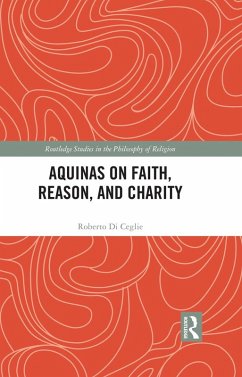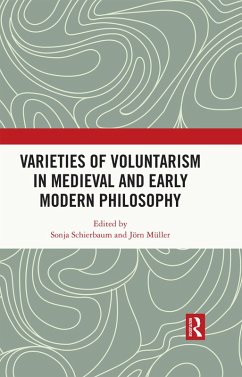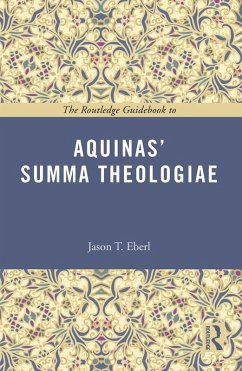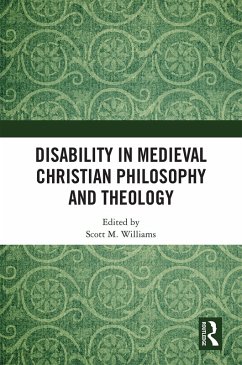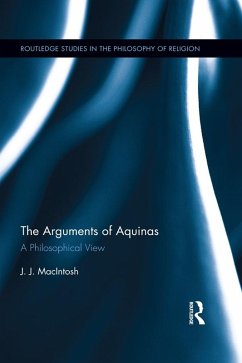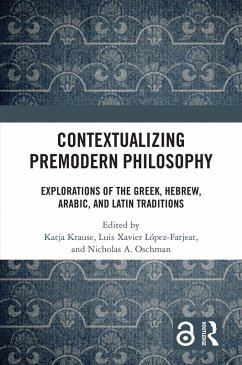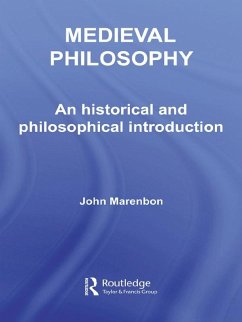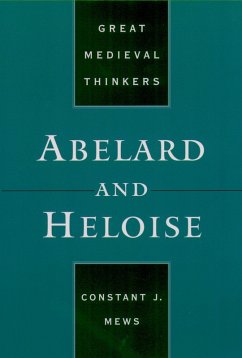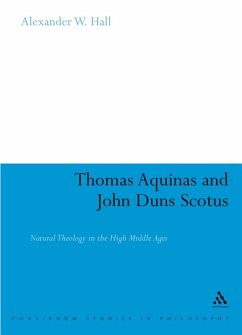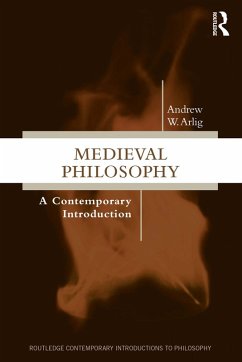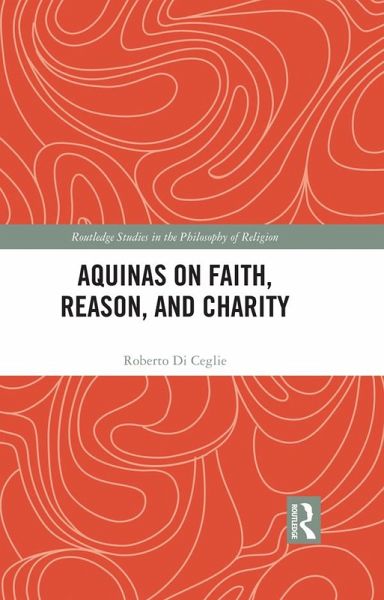
Aquinas on Faith, Reason, and Charity (eBook, PDF)
Versandkostenfrei!
Sofort per Download lieferbar
39,95 €
inkl. MwSt.
Weitere Ausgaben:

PAYBACK Punkte
20 °P sammeln!
This book offers a new reading of Aquinas's views on faith. The author argues that the theological nature of faith is crucial to Aquinas's thought, and that it gives rise to a particular and otherwise incomprehensible relationship with reason.The first part of the book examines various modern and contemporary accounts of the relationship between faith and reason in Aquinas's thought. The author shows that these accounts are unconvincing because they exhibit what he calls a Lockean view of faith and reason, which maintains that the relationship between faith and reason should be treated only by...
This book offers a new reading of Aquinas's views on faith. The author argues that the theological nature of faith is crucial to Aquinas's thought, and that it gives rise to a particular and otherwise incomprehensible relationship with reason.
The first part of the book examines various modern and contemporary accounts of the relationship between faith and reason in Aquinas's thought. The author shows that these accounts are unconvincing because they exhibit what he calls a Lockean view of faith and reason, which maintains that the relationship between faith and reason should be treated only by way of evidence. In other words, the Lockean view ignores the specific nature of the Christian faith and the equally specific way it needs to relate to reason. The second part offers a comprehensive account of Aquinas's view of faith. It focuses on the way the divine grace and charity shape the relationship between evidence and human will. The final part of the book ties these ideas together to show how Christian faith, with its specifically theological nature, is perfectly compatible with rational debate. It also argues that employing the specificity of faith may constitute the best way to promote autonomous and successful rational investigations.
Aquinas on Faith, Reason, and Charity will be of interest to scholars and advanced students working on Aquinas, philosophy of religion, Christian theology, and medieval philosophy.
The first part of the book examines various modern and contemporary accounts of the relationship between faith and reason in Aquinas's thought. The author shows that these accounts are unconvincing because they exhibit what he calls a Lockean view of faith and reason, which maintains that the relationship between faith and reason should be treated only by way of evidence. In other words, the Lockean view ignores the specific nature of the Christian faith and the equally specific way it needs to relate to reason. The second part offers a comprehensive account of Aquinas's view of faith. It focuses on the way the divine grace and charity shape the relationship between evidence and human will. The final part of the book ties these ideas together to show how Christian faith, with its specifically theological nature, is perfectly compatible with rational debate. It also argues that employing the specificity of faith may constitute the best way to promote autonomous and successful rational investigations.
Aquinas on Faith, Reason, and Charity will be of interest to scholars and advanced students working on Aquinas, philosophy of religion, Christian theology, and medieval philosophy.
Dieser Download kann aus rechtlichen Gründen nur mit Rechnungsadresse in A, B, BG, CY, CZ, D, DK, EW, E, FIN, F, GR, HR, H, IRL, I, LT, L, LR, M, NL, PL, P, R, S, SLO, SK ausgeliefert werden.




